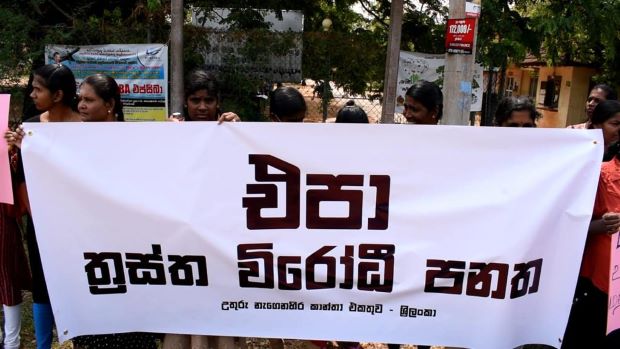COLOMBO -The Minister of Justice recently presented to Parliament the Anti-Terrorism Bill (ATA), and its first reading took place on January 10, 2024. While this Bill is fraught with problems, two main issues with the Bill remain the drafting process and the impact that the Bill will have on the liberties of the people, minorities and dissidents against the government in particular.
Originally, the government presented to Parliament a Counter-Terrorism Bill (CTA) in 2018. While it was challenged in the Supreme Court where parts of the Bill were given the green light, the government never proceeded with the Bill. Later, in March 2023, a new Bill was published in the Gazette, this time called the Anti-Terrorism Bill, which in form was similar to the former CTA, but in substance was more draconian in effect in some aspects.
The criticism against this Bill was strong and widespread with many parts of civil society coming together to voice their concerns. In response to this, the government announced that it was withdrawing the Bill and called for proposals for changes. Thereafter, a new version of the Bill was published on September 15, 2023 but despite the public opinions submitted, the new version of the ATA was in most respects identical to the former. The Bill was then published in the draft Order Paper of Parliament, but it was never presented to Parliament. On October 18, 2023, the Speaker announced that the Bill had once again been withdrawn.
The Bill that has now been presented to Parliament appears to be the same September 2023 version of the Anti-Terrorism Bill. While many steps have taken place in the legislative process with versions of the Bill being presented and withdrawn at various times, one of the most important aspects of the law-making process has been totally neglected – hearing and considering the opinions of the public, who are inevitably the most important stakeholders. Calls for public opinion have largely been a farce with the AT Bill, as it often is with laws drafted in Sri Lanka, and the result is a law that is largely unrepresentative of the needs of the people of the country.
As has been a trend in Sri Lanka, the drafting of the AT Bill has been done in the dark, and despite the outcry against it, in fact, it is a minority of Sri Lankans who are even aware of this law that will restrict their rights if passed. A poll conducted by the Centre for Policy Alternatives in November 2023 revealed that only 38.5% of the public were aware of the proposed Anti-Terrorism Bill and a major 72.6.% of this number disapproved of the Bill citing that those in power will misuse the Bill for their own benefit.
Effective anti-terrorism efforts must focus on the causes of terrorism, and what drives people into such behaviours. The AT Bill however, for the most part, follows the footsteps of its predecessor, the draconian Prevention of Terrorism Act, which, for decades, has in itself been a tool of state-sponsored terror used to suppress minorities, journalists, human rights defenders and even ordinary citizens who have been in the wrong place at the wrong time.
This dark legacy of the PTA and the widespread opposition to its continuance as a part of the legislation should have been considered when drafting a new law.
The law in itself opens up to be used to deal with more than just serious acts of terrorism. Considering the timing of when the AT Bill was first published in March 2023 and the broad and vague definitions of the offence of terrorism contained in the Bill, it certainly seems intended to also be used as a tool to quell any protests that may arise against the government. It also gives the president wide powers to issue curfews, proscription orders against organisations and even make prevention orders that make any public or private place off limits to the people. Problems seen under the PTA, primarily that of prolonged executive detention also remain a part of this new draft law.
Both the process of making the AT Bill and its contents make it clear that this is a self-serving piece of legislation aimed at protecting the government but with little to no heed paid to the actual needs of the people. If passed, the country will see itself doomed to more decades of suppression, torture and abuse.
-Centre for Policy Alternatives
.



Comments are closed, but trackbacks and pingbacks are open.